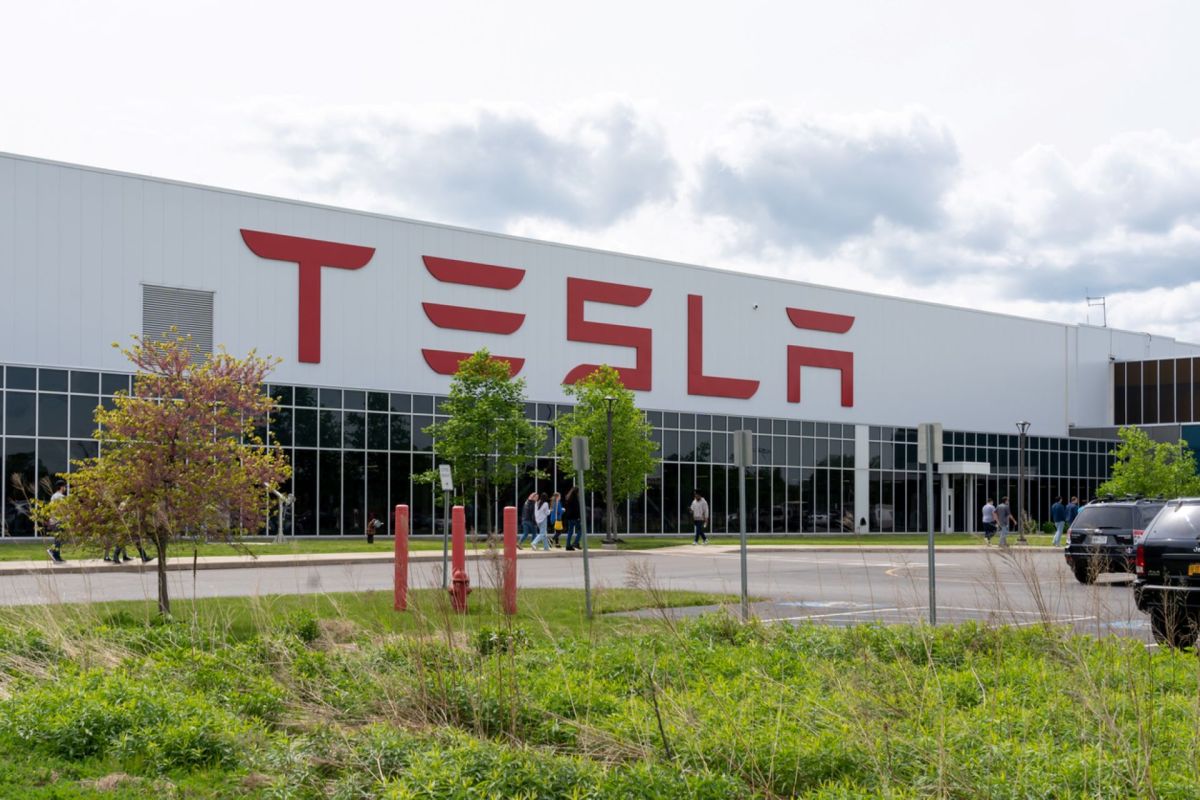It may just seem like more EV-geeky news that Tesla has announced its 20 millionth 4680 battery cell made in Texas, but the accelerating production of these range-boosting batteries in the U.S. could be low-key game-changing for the automaker — and the auto industry.
On Oct. 11, Tesla confirmed the 20-million milestone with a post on X (formerly Twitter) that showed staff celebrating at the company's Gigafactory Texas in Austin. As Electrek described, the event marked "a significant breakthrough" in producing 4680 batteries, advanced energy packs destined for newer models including the Cybertruck.
Just built our 20 millionth 4680 cell at Giga Texas! pic.twitter.com/6PCD6UC9PS
— Tesla (@Tesla) October 11, 2023
Back in June, Tesla reported production of its 10 millionth 4680 cell at its Texas plant. Electrek observed that this means the company made 10 million more cells in 16 weeks, suggesting that it had boosted 4680 production, addressing earlier issues ramping up.
Tesla has claimed that the 4680 — which it first revealed at the company's Battery Day in 2020 — might reduce battery cost by over 50%, reported Electrek.
The company has also indicated this type of battery has the advantages of storing more energy, delivering more power, and allowing EVs to travel farther on a charge, as another Electrek article detailed.
For consumers, these batteries could keep EV prices down and incentives up while allowing more range in new Tesla models.
Expanded 4680 production in the U.S. will likely allow new models to qualify for tax incentives that require a certain percentage of battery components to be made in America.
According to Electrek's estimates, it also means Tesla is producing about four gigawatt-hours of battery storage capacity annually at this Gigafactory.
For perspective, a report from the Global Battery Alliance and McKinsey & Company anticipates that the rapidly increasing demand for batteries used in "mobility" (including for EVs) will reach about 4,300 gigawatt-hours by 2030.
Meeting demand for storage and EVs is also a key to reducing pollution that overheats the planet. EVs produce no tailpipe pollution and are overall responsible for far less pollution over their lifetimes than gas-powered vehicles.
Faster production of 4680 cells — which previously slowed new EV releases — may allow Tesla to better meet its goals.
"I honestly think the [4680] cell production problems are one of the biggest underreported issues about Tesla," said one Electrek commenter. "I'm glad they are finally resolving their issues."
"Amazing," wrote another. "Tesla does not rest on their well-deserved laurels. The legacy car makers will never catch up to their design and manufacturing innovations."
Join our free newsletter for weekly updates on the coolest innovations improving our lives and saving our planet.









